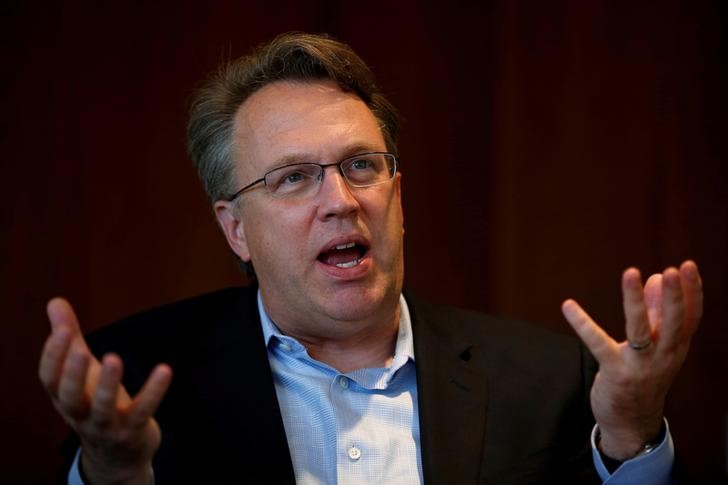SYDNEY (Reuters) - With the U.S. economy at full employment and inflation set to hit the Federal Reserve's 2-percent target next year, the U.S. central bank needs to keep raising rates gradually to keep the economy on an even keel, a Fed policymaker said Monday.
"If we delay too long, the economy will eventually overheat, causing inflation or some other problem," San Francisco Fed President John Williams said in remarks prepared for delivery to the University of Technology Sydney.
"Gradually raising interest rates to bring monetary policy back to normal helps us keep the economy growing at a rate that can be sustained for a longer time."
The Fed earlier this month raised interest rates a second time this year, and signaled it plans to raise them once more in 2017 and three times in 2018. But with inflation recently weakening and economic growth stuck at 2 percent, traders have been betting the Fed will end up going much more slowly.
On Monday, Williams appeared keen to reset those expectations. Like Fed Chair Janet Yellen, Williams said he believes recent weak inflation readings will be transitory, and forecast a return to 2-percent inflation by next year.
Meanwhile, Williams said, labor markets will continue to strengthen, with the U.S. unemployment rate, now at a 16-year low of 4.3 percent, likely to fall further and stay a little above 4 percent through next year.
"The very strong labor market actually carries with it the risk of the economy exceeding its safe speed limit and overheating, which could eventually undermine the sustainability of the expansion," Williams said. "My goal is to keep the economic expansion on a sound footing that can be sustained for as long as possible."
Williams reiterated the Fed's plans to start shrinking its $4.5 trillion balance sheet this year, and promised the Fed will normalize policy in a well-telegraphed, gradual manner so as to reduce unnecessary market disruption both at home and abroad.

"The more public understanding, the less chance that (the Fed's) actions will fuel unnecessarily volatility in the markets," Williams said.